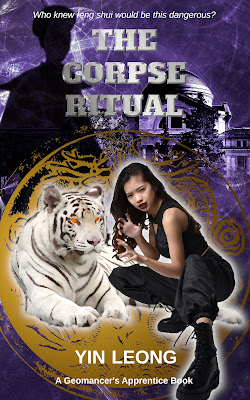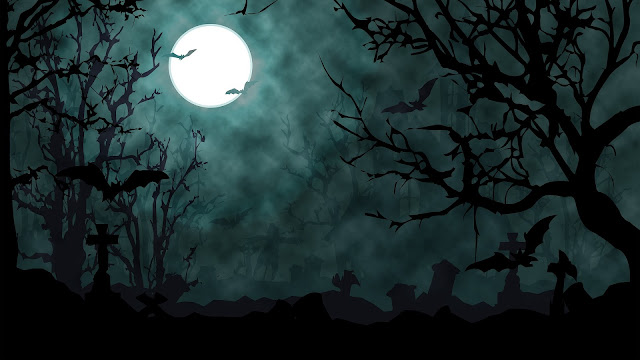Have Yourself a Gothic Little Christmas
I’ve always liked the old British custom of telling ghost stories on Christmas Eve. Charles Dickens was just continuing a centuries-long tradition when he published “A Christmas Carol” in 1843, a tale in which Ebenezer Scrooge is plagued by four apparitions.
Sadly, the custom never caught on in America and it’s been mostly forgotten in Britain. As a horror fan, I think the custom should be introduced in the U.S. and revived in the U.K. I’ll even sign the petition if someone wants to start one.
But until then, I can suggest a few ghastly tales for your reading pleasure that I think best evoke the spirit of the custom. Because I love gothic horror, I’ve chosen stories from the 1800s to the mid-1900s. Some of the most chilling ghost stories were written during that time. You simply can’t beat them for atmosphere.A few of the stories are well-known. All of them, including the more obscure ones, are available on the internet. They also can be found in various anthologies, which is how I discovered them in the first place.
Dim
the lights when you read them. Imagine you’re in an old manor house
in the middle of the British moors. It’s Christmas Eve and you and
your friends are sitting by the fire. Outside, the wind keens and the
sleet ticks against the window pane. Someone clears her throat. She
is about to begin her eerie tale.
Arthur Rackham illustration: Prawny
*****
1. An Episode of Cathedral History (M.R. James):
You can’t discuss Christmas ghost stories without mentioning British scholar and writer Montague Rhodes James (1862 - 1936). Among other academic achievements, James was vice-chancellor of Cambridge University from 1913 to 1915. Many of his stories were intended to be read aloud to his friends on Christmas Eve.
In “An Episode of Cathedral History,” first published in 1914, something unnatural is released during the renovation of an ancient cathedral.
2. Smee (A.M. Burrage):
British writer Alfred McLelland Burrage (1889 - 1956) published this story in 1931. It centers on a game of hide-and-seek in a house where a young woman was killed.
3. The Shadow (E. Nesbit):
British author and poet Edith Nesbit (1858 - 1924) is best remembered for her children’s books, including “The Railway Children” and “Five Children and It.”
“The Shadow” was first published as “The Portent of the Shadow” in 1905. It’s about a new villa that is haunted by a strange shadow.
4. Lucky’s Grove (H.R. Wakefield):
British author Herbert Russell Wakefield (1888 - 1964) published “Lucky’s Grove” in 1940. In the story, a self-made man takes a Christmas tree from a place he shouldn’t have.
5. The Old Nurse’s Story (Elizabeth Gaskell):
British author Elizabeth Gaskell (1810 - 1865)—often referred to as “Mrs. Gaskell”—is best known for her novels “North and South” and “Wives and Daughters.”
This classic gothic ghost story was published in 1852. It features a rundown manor in the Northumberland moors haunted by tragedy and the spiteful ghost of a little girl.
6. The Turn of the Screw (Henry James):
Henry James’s (1843 - 1916) famous novella, first published in 1898, has been adapted for countless stage productions, movies and television shows, including Netflix’s TV series, “The Haunting of Bly Manor.”
The story begins with a manuscript that a narrator reads aloud on Christmas Eve. It is written by a young woman who travels to a country estate in Essex to be governess to two children.
 |
| Image: fmatte at Pixabay.com |
Howard Phillips Lovecraft (1890 - 1937) needs no introduction. You didn’t think I’d include only British ghost stories, did you? Henry James, of course, was an American who took up British citizenship only in the final year of his life.
In “The Festival,” published in 1925, the narrator visits an old sea town during the yuletide and witnesses a macabre festival.
8. The Raven (Edgar Allan Poe):
It’s fitting to end this post with Edgar Allan Poe (1809 - 1849), who is synonymous with the gothic ghost story.
His famous narrative poem, published in 1845, takes place “in the bleak December.”



Comments
Post a Comment